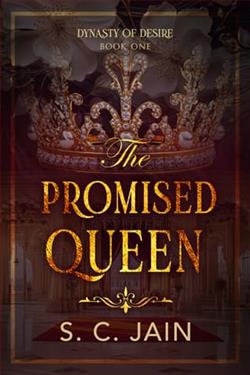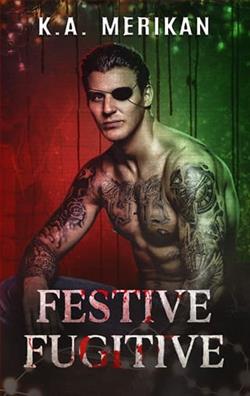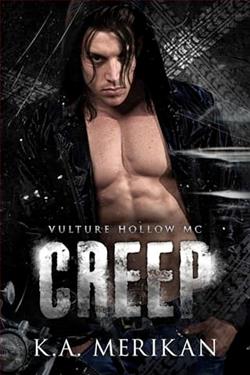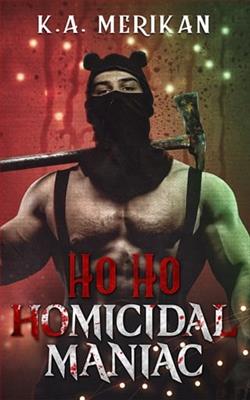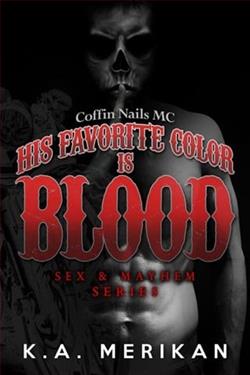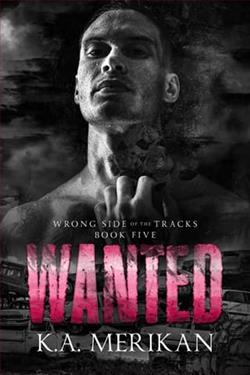Page 148 of Just One Year (Just One Day 2)
I pull out the folder. Inside is some of my old schoolwork, my early writing, math tests. I look in another folder: not schoolwork but drawings of a ship, a star of David that Saba taught me to do with two triangles. Pages and pages of this stuff. Unsentimental Yael and clutter-phobic Bram never displayed things like this. I assumed they threw it away.
In another box, I find a tin full of ticket stubs: airplane tickets, concert tickets, train tickets. An old Israeli passport, Yael’s, full of stamps. Beneath that, I uncover a couple of very old black-and-white photos. It takes me a moment to recognize that they’re of Saba. I’ve never seen him this young before. I hadn’t realized any of these photos had survived the war. But it’s unmistakably him. The eyes, they are Yael’s. And mine, too. In one photo, he has his arm slung over a pretty girl, all dark hair and mystery eyes. He looks at her adoringly. She looks vaguely familiar, but it can’t be Naomi, whom he didn’t meet until after the war.
I look for more old photos of Saba and the girl, but find just an odd newspaper clipping of her in a plastic liner. I peer closer. She’s wearing a fancy dress and is flanked by two men in tuxedoes. I hold it up to the light. The faded writing is in Hungarian, but there’s a caption with names: Peter Lorre, Fritz Lang—Hollywood names I recognize—and a third name, Olga Szabo, which I don’t.
I set the photos aside and keep digging. In another box, there are endless keepsakes. More papers. And then in another box, a large manila envelope. I open it up and out tumbles more photos: me, Yael, and Bram, on holiday in Croatia. I remember again how Bram and I walked to the docks every morning to buy fresh fish that no one really knew how to cook. There’s another photo: us bundled up for skating the year the canals froze over and everyone took to their skates. And another: celebrating Bram’s fortieth birthday with that massive party that spilled off the boat, onto the pier, onto the street, until all the neighbors came and it became a block party. There are the outtakes from the architectural magazine shoot, the shot of the three of us before I was cropped out. When I get to the bottom of the pile, there’s one photo left, stuck to the envelope. I have to gently pry it away.
The breath that comes out of me isn’t a sigh or a sob or a shudder. It’s something alive, like a bird, wings beating, taking flight. And then it’s gone, off into the quiet afternoon.
“Everything okay?” Daniel asks me.
I stare at the shot. The three of us, from my eighteenth birthday, not the photo I lost, but a different picture, taken from a different perspective, from someone else’s camera. Another accidental picture.
“I thought I’d lost this,” I say, gripping the picture.
Daniel cocks his head to the side and scratches at his temple. “I’m always losing things, and then I find them again in the strangest places.”
Thirty-nine
A few days later, I leave for rehearsal and Daniel leaves for the airport. It’s strange to think that when I come back that night, Daniel will be gone. Though I won’t have the flat to myself for long. Broodje has been in The Hague for most of the summer on an internship, and now he’s in Turkey visiting Candace, who’s on a two-week trip there with her grandparents. When he comes back, he’ll stay here with me until he and Henk move into their new flat in Utrecht in the fall.
Rehearsal today is frenzied and frenetic. The set is being broken down, transported to the park for tomorrow’s tech, and the lack of scenery seems to have unhinged everyone. Petra is a whirlwind of terror, yelling at the actors, yelling at the tech guys, yelling at Linus, who looks like he would like to take cover under his clipboard.
“Poor Flunky,” Max says. “For someone menopausal, Petra seems like she’s on the rag. She smashed Nikki’s mobile.”
“Really?” I ask Max, sliding into our usual seats.
“Well you know how she is if you put your phone on in the ‘sacred rehearsal room.’ But I heard she’s extra uppity because Geert said ‘Mackers’ in the theater earlier.”
“Mackers?”
“The Scottish Play,” she says. When I fail to understand she mouths Macbeth. “Very bad mojo to say it in a theater.”
“You believe that?”
“I believe you don’t mess with Petra the day before the first tech.”
Jeroen walks by. He looks at me and feigns a cough.
“That the best you can do?” Max calls after him. She turns to me. “And he calls himself an actor.”
Linus has the cast do an entire run-through. It’s a mess. Lines are forgotten. Cues are missed. Blocking is flubbed. “The curse of Mackers,” Max whispers.
By six o’clock, Petra is in such a state that Linus lets us all go early. “Get a good night’s sleep,” he says. “Tomorrow is a long day. Call is at ten.”
“It’s too early to go to the bar,” Max says. “Let’s go eat and then go dancing or hear a band play. We can see who’s on at Paradiso or Melkweg.”
We ride over to the Leidseplein. Max is beside herself because some musician who was once in a famous band is playing solo tonight at the Paradiso and there’s still tickets left. We buy a pair. Then we wander around the square, which this time of year is ground zero for tourists. There’s a crowd of them surrounding some street performers.
“It’s probably just those bloody Peruvian musicians,” Max says. “Do you know, when I was little, I thought it was the same troupe, following me. Took me ages to work out they were clones.” She laughs and knocks her head with her knuckles. “I can be right thick sometimes.”
It’s not the Peruvians. It’s a group of jugglers. They’re not bad, juggling all kinds of typically spiked flaming things. We watch for a while, and when the hat passes, I toss in a handful of coins.
We turn to leave and Max pokes me in the side. “Now’s the real show,” she says. I turn around and see who she’s talking about: a woman has her legs wrapped around one of the jugglers’ hips, her arms tangled in his hair. “Get a room,” Max jokes.
I watch them a moment longer than I ought to. And then the girl drops down and turns around. She spots me and I spot her, and we do a double take.








